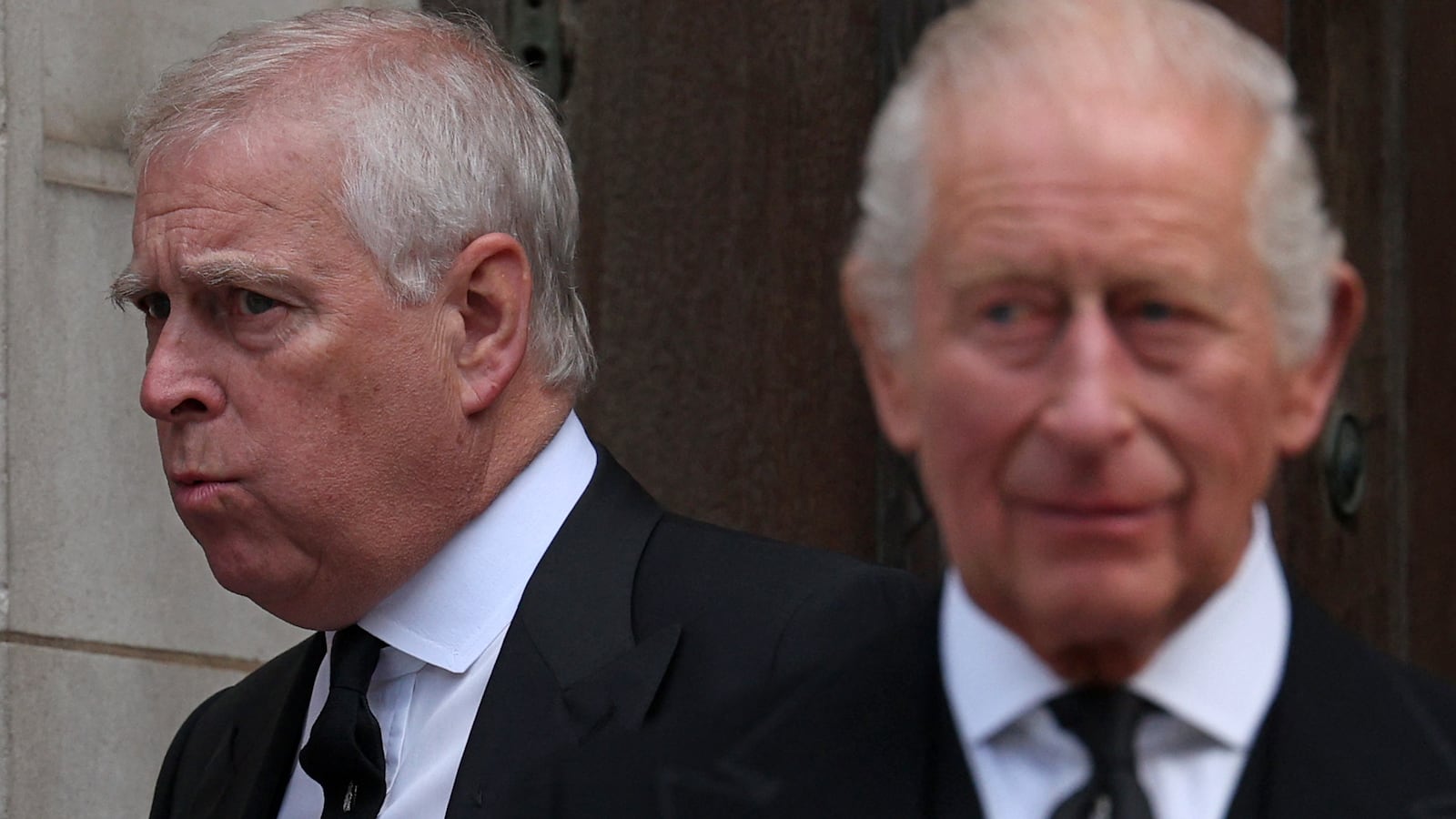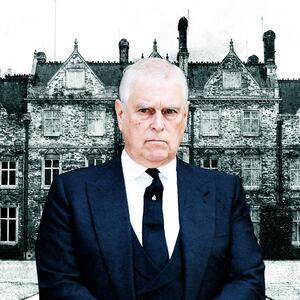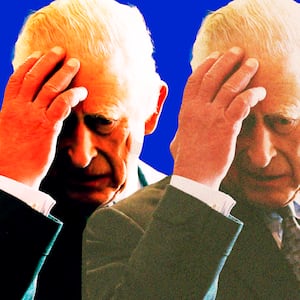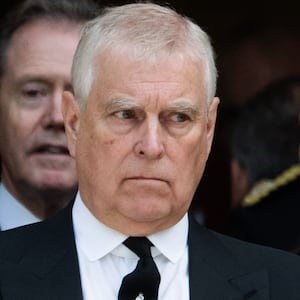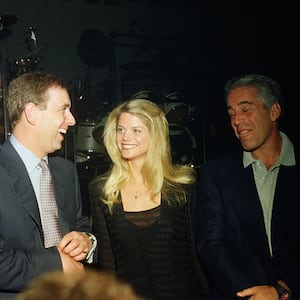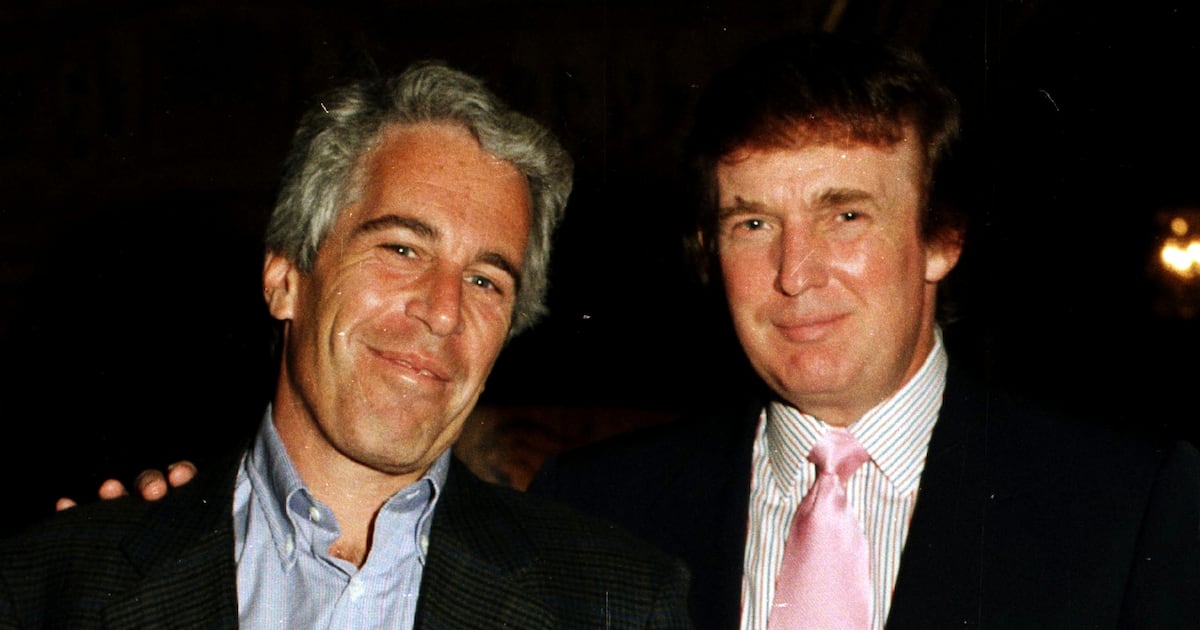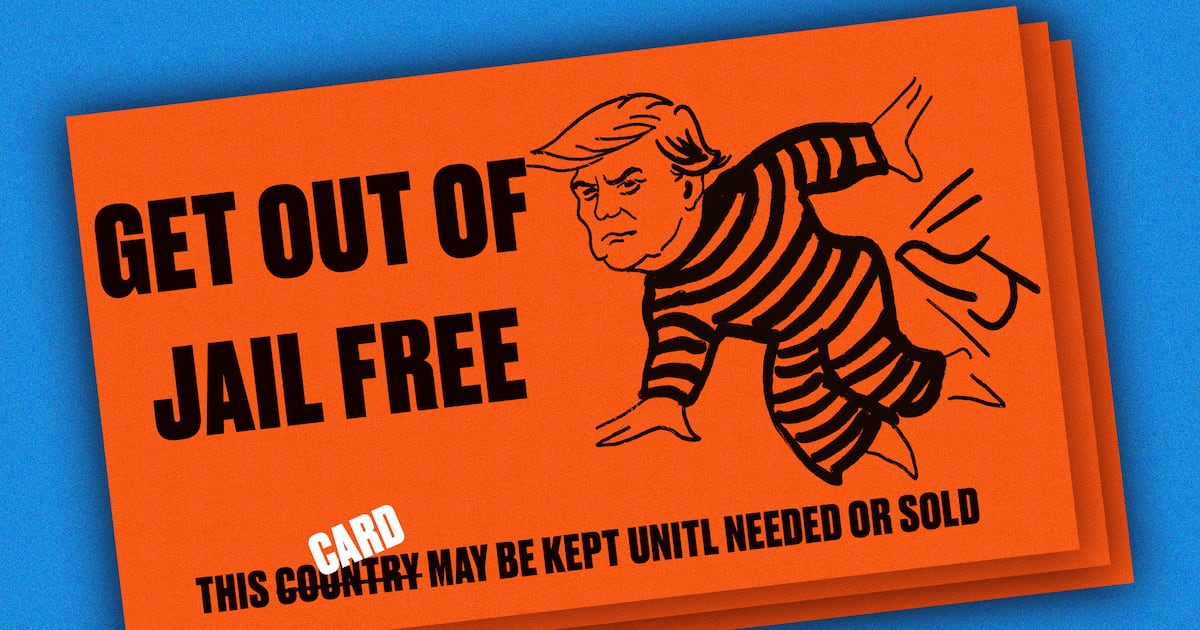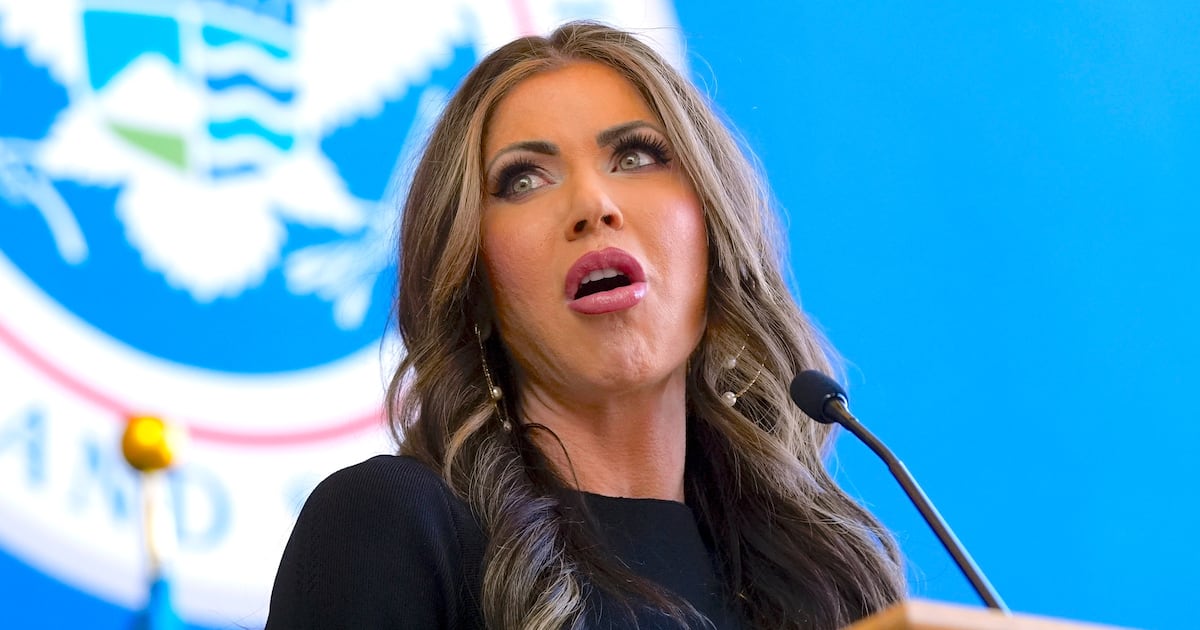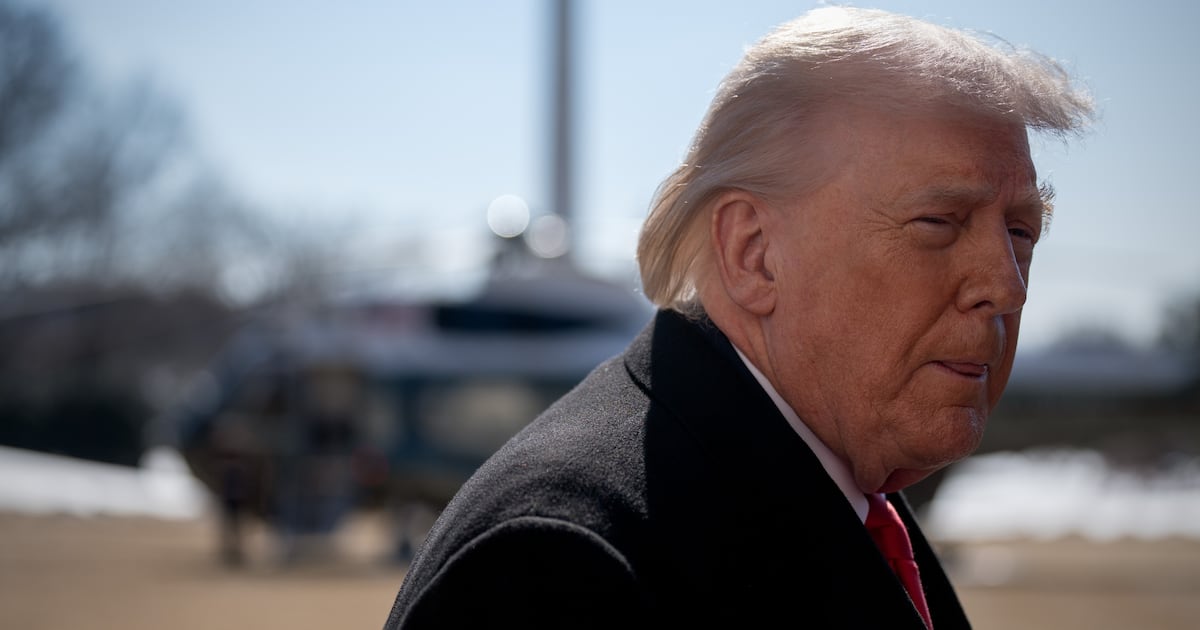King Charles’ belated decision to strip his brother of the title of “Prince” and evict him from Royal Lodge—after many years in which his aides insisted both things couldn’t be done—already looks like it may be too little too late.
Calls are growing for Andrew to face a proper police investigation over his links to Jeffrey Epstein and Ghislaine Maxwell, fueled by recent revelations that he lied about how long his relationship with Epstein continued.
Demands that Andrew face the same justice as his non-princely brethren also intensified last week, following the publication of Epstein victim Virginia Giuffre’s posthumous memoir in which she reiterated, in graphic terms, the allegations that she had been raped three times by Andrew when she was a teenager.
Public anger is also likely to be fueled by The Royalist’s revelations that the Grand Old Duke of York is marching off with millions, having received a “handsome” payoff worth millions in return for surrendering his lease on Royal Lodge.
On Thursday, following new revelations about his links to Epstein and the publication of Giuffre’s book, Andrew was stripped of his princely titles in a humiliating manner. He will now be known as Mr. Andrew Mountbatten Windsor.

No British royal has been stripped of their title since royals who were also German nationals and relatives of the Kaiser took up arms against the U.K. in the First World War.
However, critics immediately said it was not an adequate response.
Graham Smith of the anti-monarchy campaign group Republic told The Royalist podcast: “The problem is the royals keep thinking this is enough. I couldn’t care less about the prince title. He remains accused of serious offenses and I do not believe that there is not enough evidence to have a genuine police investigation. Worrying about what he is called, or where he lives, is not an appropriate response.”
Royal aides said that Andrew Mountbatten Windsor “did not object” to the removal of his titles.
Friends of Mountbatten Windsor told the Daily Beast that Andrew had reached a generous financial settlement with King Charles as part of the deal, which will see him move to a private home on the Sandringham Estate in Norfolk as soon as is practicable. He is understood not to be moving to Wood Farm, the retirement home of the late Prince Philip.
One friend said, “Andrew made it clear that he needed to be financially recompensed for surrendering the remaining 50 years of his lease on one of England’s finest homes. The lease was his daughter’s inheritance and an asset, and in this country, you can’t seize people’s assets. Charles was always going to have to pay him off, and he has done what he should have done in the first place.”
Another friend of both Andrew and his ex-wife Sarah Ferguson told the Daily Beast, “The pension is handsome.”
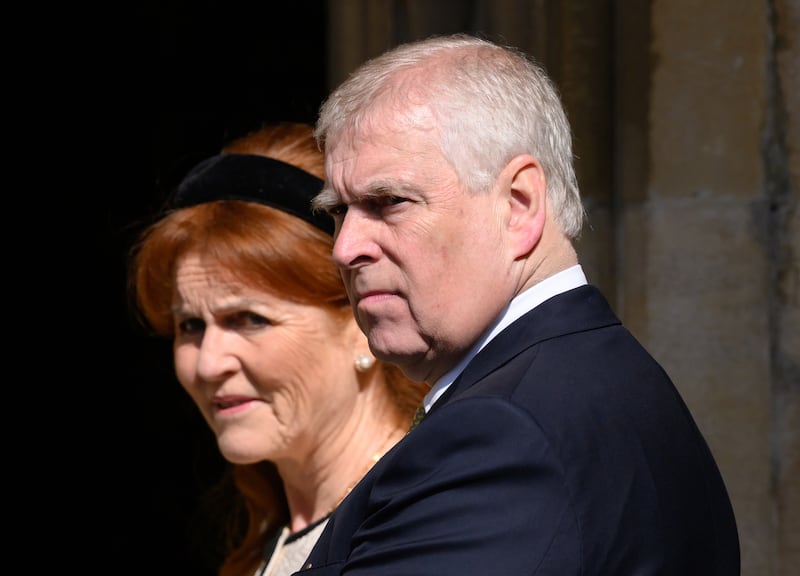
Buckingham Palace declined to comment. However, in official documentation seen by The Royalist, the palace admitted that not only would Andrew be given a home on the Sandringham estate funded by the king, but that he would also receive direct funding in the form of “appropriate private provision.”
The palace also suggested that he would be allowed to continue earning money privately.
In their official statement, the palace said: “Prince Andrew will now be known as Andrew Mountbatten Windsor.
“His lease on Royal Lodge has, to date, provided him with legal protection to continue in residence.
“Formal notice has now been served to surrender the lease and he will move to alternative private accommodation.
“These censures are deemed necessary, notwithstanding the fact that he continues to deny the allegations against him.”
In a clear sign that Queen Camilla was part of the decision-making process, the statement concluded:
“Their Majesties wish to make clear that their thoughts and utmost sympathies have been, and will remain with, the victims and survivors of any and all forms of abuse.”

An old friend of Andrew’s told The Royalist earlier on Thursday, before the deal was announced: “Andrew is quite prepared to leave Royal Lodge if he is treated fairly and compensated for what remains of the lease. His children would have inherited the lease, which was always the understanding, so Andrew will want fair compensation to make things right for them.”
Asked if there was a “number” he had in mind, the source said, “I think a couple of million would go a long way.”
The arithmetic of his Royal Lodge lease explains why today may have been an expensive day for the king.

The former duke prepaid £8.5 million (approximately $10.9 million) for a 75-year lease on the property, effectively purchasing a lifetime tenancy at the bargain rate of around £113,000 ($145,000) per year. In commercial terms, that is ludicrously cheap for a 30-room mansion on 90 acres in Windsor Great Park whose open-market rent could easily exceed £1 million ($1.27 million) per year.
Under the terms of the lease, the ex-Prince was due to receive only £557,000 ($708,000) in compensation, hardly enough to tempt him out of one of Britain’s grandest private homes—especially when, over the next half-century, he and his heirs stood to enjoy accommodation worth upwards of £50 million ($63 million) on the open market for no further outlay aside from maintenance costs.
Andrew’s side has long pointed to his “iron-clad” lease, and this was also referenced in official briefings, with aides noting that the king was subject to the law of the land and that, as a result, “negotiations” had to be entered into.
It is likely that the promise that Andrew’s daughters, Princess Beatrice and Princess Eugenie, could retain their royal status and titles helped persuade him to leave the property finally.
It was reported earlier this week that William had threatened Beatrice and Eugenie with the loss of their titles unless their father moved out of Royal Lodge. William’s office subsequently denied this, and today the king’s office stated that they would retain their titles.
Want more royal gossip, scoops, and scandals? Head over to The Royalist on Substack

